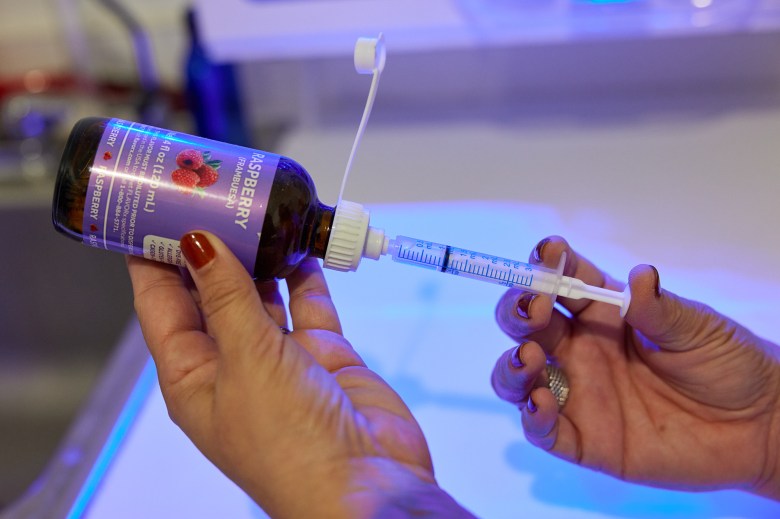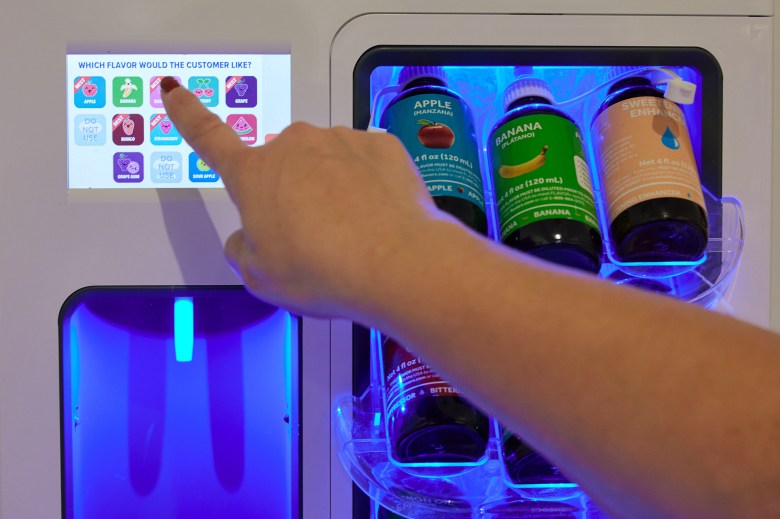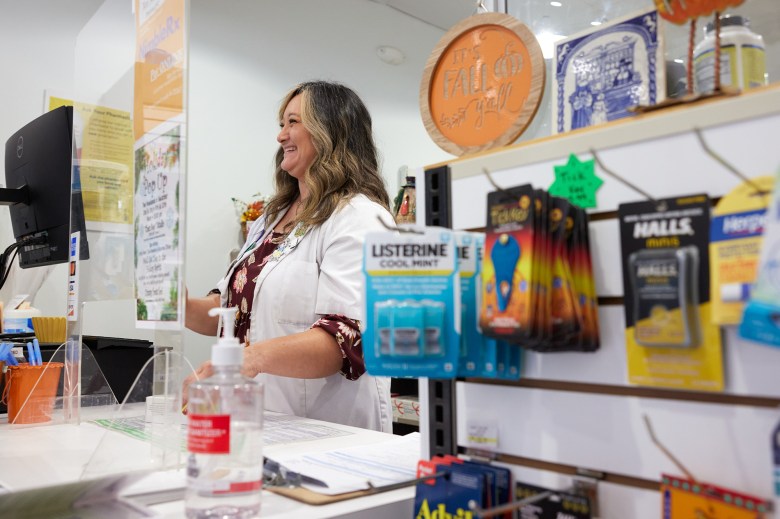thoseSanta Barbara IndependentRepublishes stories fromCalMatters.orgAbout state and local issues affecting Santa Barbara County readers.
Lea este artculo en espaol.
Earlier this month, more than 3,000 California pharmacies ended a service long offered to help the drug decline, and it’s unclear when they will restore it.
Pharmacies suspended the practice of flavoring their drugs as they await rules from a state regulator charged with applying federal guidance on how they serve as compounding drugs.
Common over-the-counter medications include flu syrups such as Tamiflu and various prescription antibiotics, including amoxicillin and Augmentin. Parents are worried about this change as respiratory diseases and infections are common especially in winter.
Brenda Alvarez of Anaheim said her four children don’t like taking unflavored medicine. It’s hard for them to get medicine, especially when they’re sick, because the taste is really bad, she said.
New guidance from the United States Pharmacopeia, a nonprofit that advises the federal government, calls for pharmacies to discontinue flavoring services.
That’s a departure from California’s past policy. In 2010, the California Board of Pharmacy clearly stated in their rule book that the addition of flavoring agent(s) to the formulation of the drug is not included to enhance palatability.
Californias Board of Pharmacy is now developing rules that will follow the federal guidelines. Although these laws do not prohibit flavorings, pharmacists must comply with more stringent regulations when providing the service.
Chad Baker, senior vice president of marketing at flavor maker FLAVORx, said it’s easier for California pharmacies to drop service than deal with potential costs and citations from the state regulator.
California’s Board of Medicine has been particularly harsh for the last 14 years because it has had language that says it is not a flavoring compound. So that’s what most pharmacies base their investments on and what they want to offer customers, he said.

Pharmacists are also worried about losing customers.
“When we talk about sweeteners, we’re talking about products that are actually manufactured, have expiration dates and are quality controlled by the manufacturer,” said Sonya Frausto, a pharmacist and owner of a Sacramento pharmacy. No new compound was created.
Assemblywoman Tina McKinnor, an Inglewood Democrat, introduced a bill this year that would have prevented confusion by excluding flavoring drugs from being considered a compound. The bill passed the Legislature by a majority, but Governor Gavin Newsom vetoed it.
While I appreciate the authors’ intent to maintain the current existence of flavoring drugs, this bill would create standards in California that would meet the US Drug-National Formulary Guidelines for formulations designed to minimize the risk of harm to patients. wrote in his negative message.
The veto surprised some lawmakers who supported the bill.
Anyone who’s a parent knows that drugs are only good when they’re consumed, and when you have a child who resists taking drugs, that’s a big problem, said Rep. Tom Lackey, a Republican from Palmdale, who was one of the co-authors. Versions of the Bill.
Confusion about pharmacy rules
California is bound by federal guidance due to a law signed by Newsom in 2019 that requires the board of pharmacy to adopt regulations based on US Pharmacopoeia standards.
The US Pharmacopeia released updated guidance on compounding in late 2022 that included stricter regulations, but was vague on the flavoring issue. Later, it issued an addendum to the guideline from 2004 stating that the flavoring is within the scope of the medicinal compound.
In April, pharmacists attended a pharmacy board meeting where they asked regulators to exempt the sweetener from compounding laws. Board Vice President Maria Sarpa told them such an action would be against board authority and conflict with federal law. According to meeting minutes, California cannot adopt a standard lower than that established by the United States Pharmacopeia.

Lobbyists representing pharmacies and flavoring manufacturers wrote several letters to the state board asking it to reconsider its position. In one letter, they wrote, the panel has for decades considered medicinal flavoring as a medicinal use outside the realm of compounding.
But the panel was unmoved, and Newsom vetoed the bill, which would have given pharmacies more leeway.
Compliance with the US Pharmacopeia includes strict hygiene regulations as well as documentation of the compounding process. Some pharmacists are concerned that the policies may increase their costs.
According to a statement from the California Board of Pharmacy, the pharmacy law does not require a pharmacy to obtain a special or secondary license to compound non-sterile products that include flavorings. A pharmacy that practices non-sterile compounding must comply with federal law, national standards, and state law.
Parents in California are worried about their children’s medications
Parents worry that the lack of sweeteners will prevent their children from taking their medicine.
Special needs parents like me really struggle with kids who need to take their medication, said Alvarez, whose oldest son, 9, has autism and sensory processing disorder.

Frausto, a Sacramento pharmacist, is also a mother of two. When medicines are flavored, children are more likely to take the full dose on time, she said.
We want to make them feel comfortable, she said. Avoiding sweeteners sometimes makes a lasting impression on children. They can say, oh I remember when I tasted that amoxicillin it was disgusting, versus, I remember I took that medicine and it tasted like grapes, and the next time I’m prescribed I can keep taking it, she said.
Pharmacy chains including CVS and Rite Aid have stopped offering flavors of the drug. Small pharmacies, such as Fraustos Ten Acres Pharmacy, an independent local pharmacy in Sacramento, are concerned about the increased costs that could come with the federal guidance.
I don’t have the capital to reinvest in a new hood or new type of ventilation system depending on what [the boards] Needs are, she said.
In California, the number of dispensaries that still offer sweeteners dropped to 50, out of more than 3,000 locations. This means that families, especially those living in rural areas, may have to travel long distances to get their children’s medicines.
Even though she has to drive long distances, Alvarez said she gives her children sweeteners.
She said it would be more uncomfortable now. But I don’t see (my son) taking his meds any other way so I guess that would be the only way.
Supported by the California Health Care Foundation (CHCF), it works to ensure people can afford the care they need, when they need it. the journey www.chcf.org To learn more.
#California #pharmacies #drop #flavored #childrens #drugs #state #law #effect
Image Source : www.independent.com